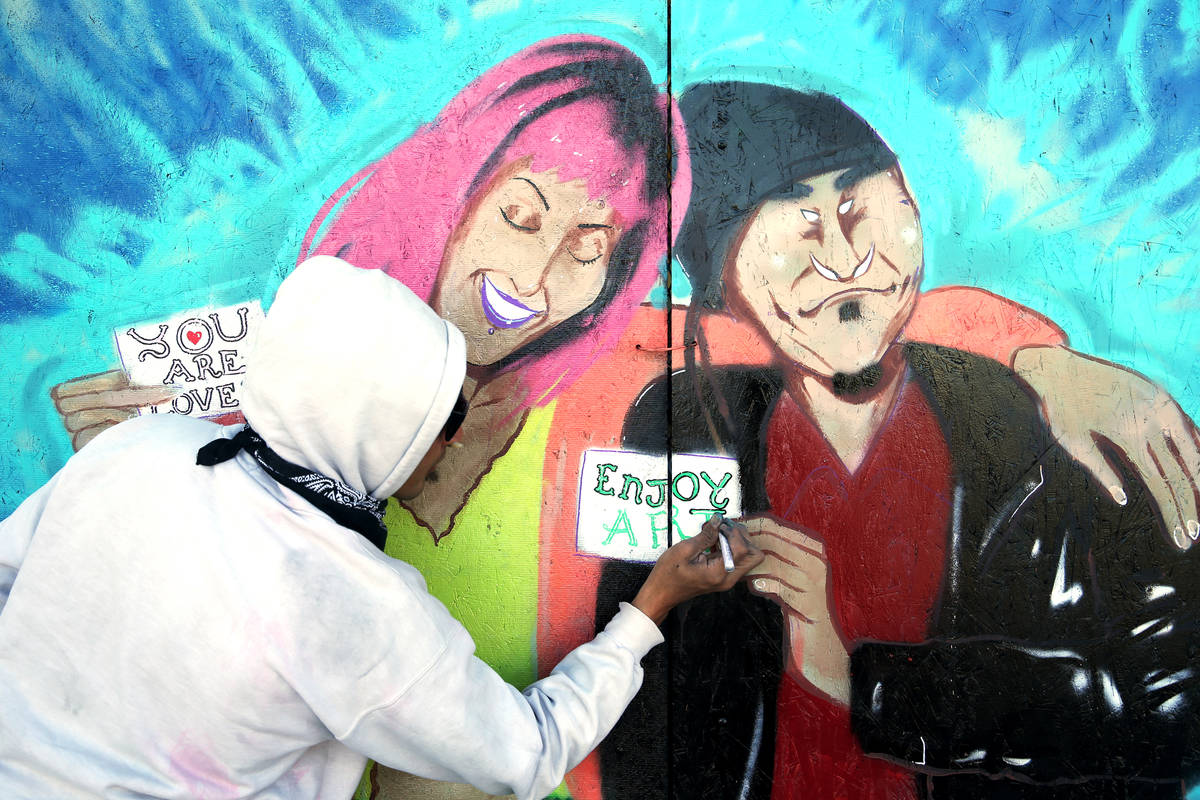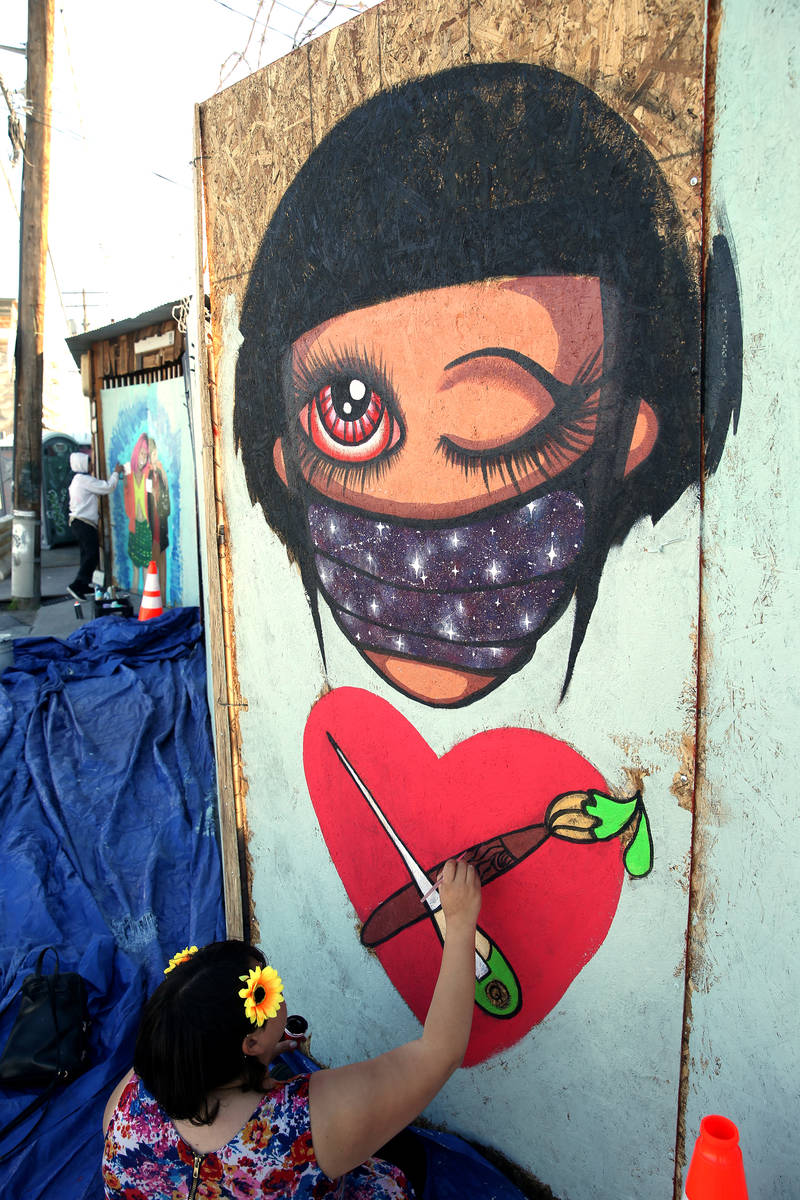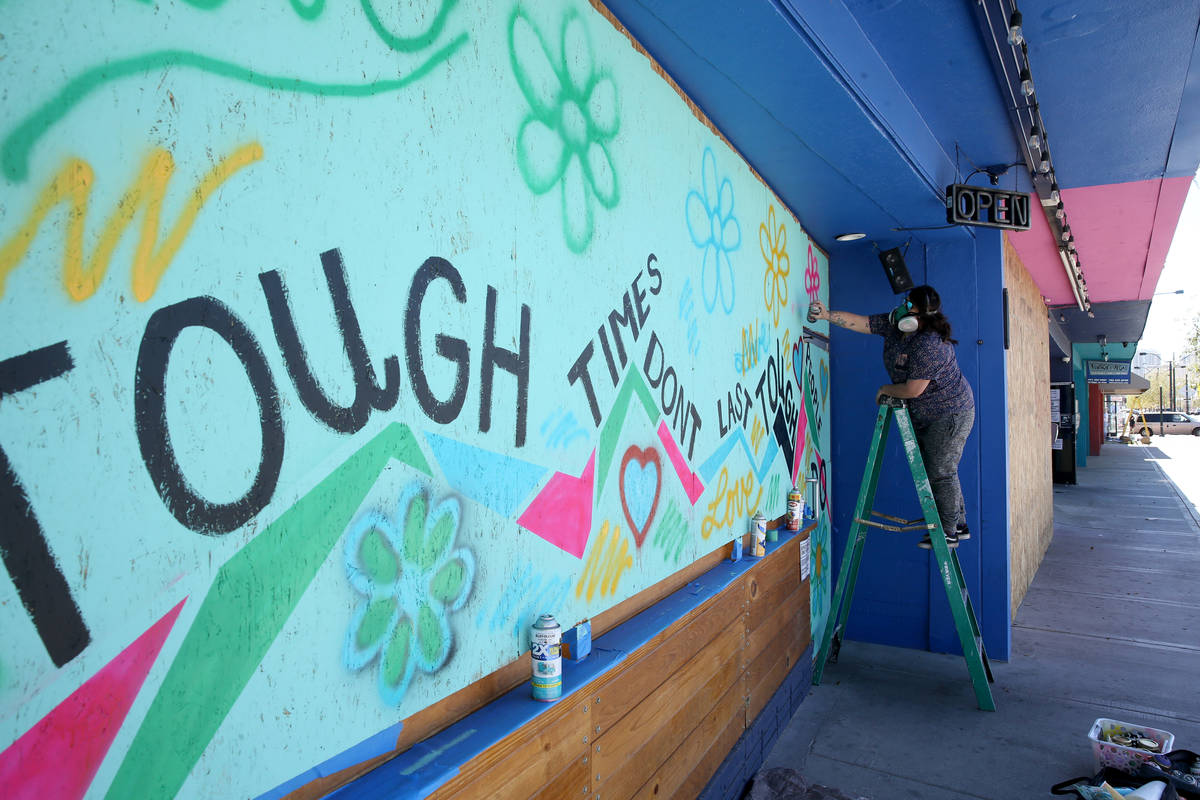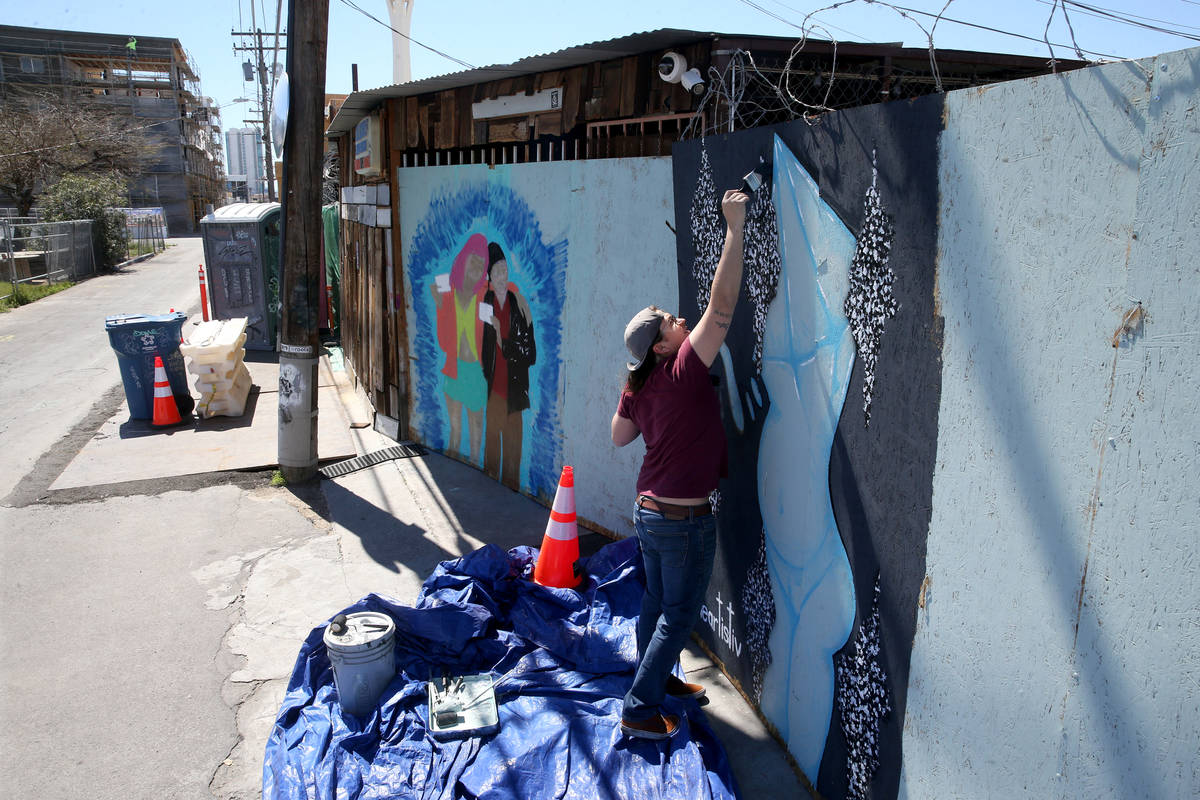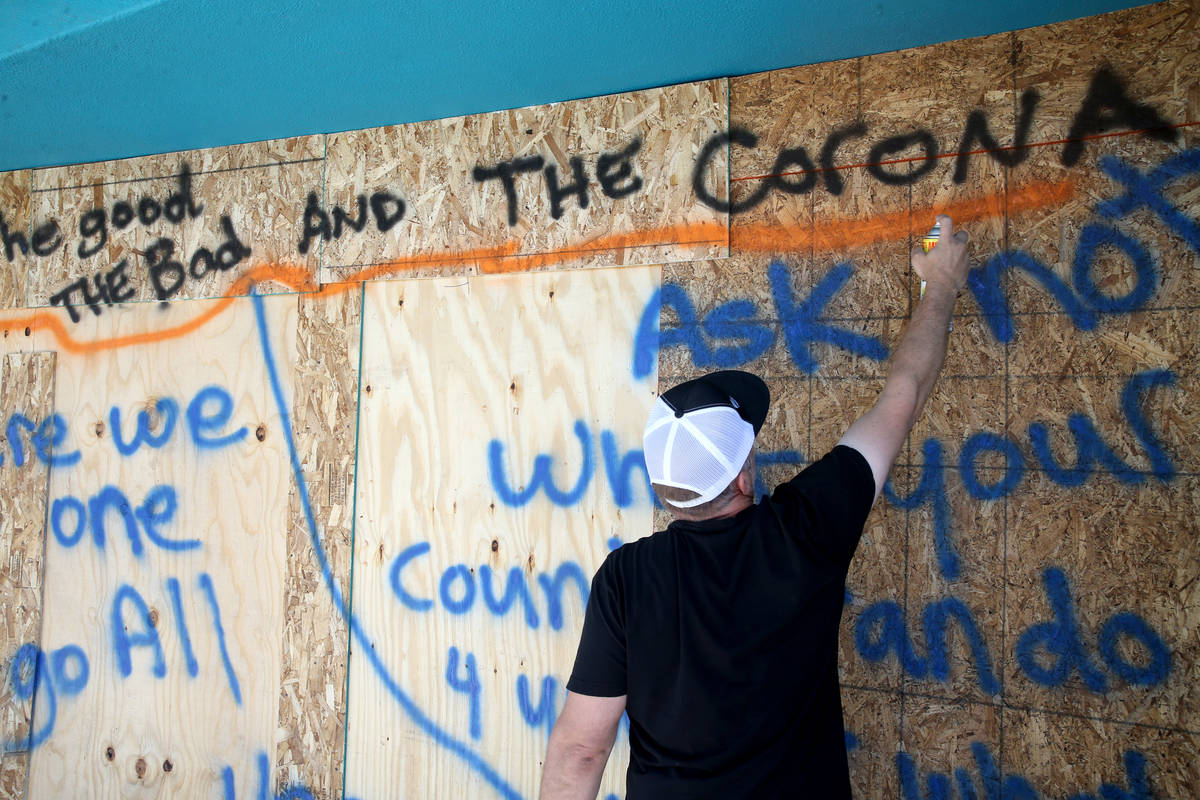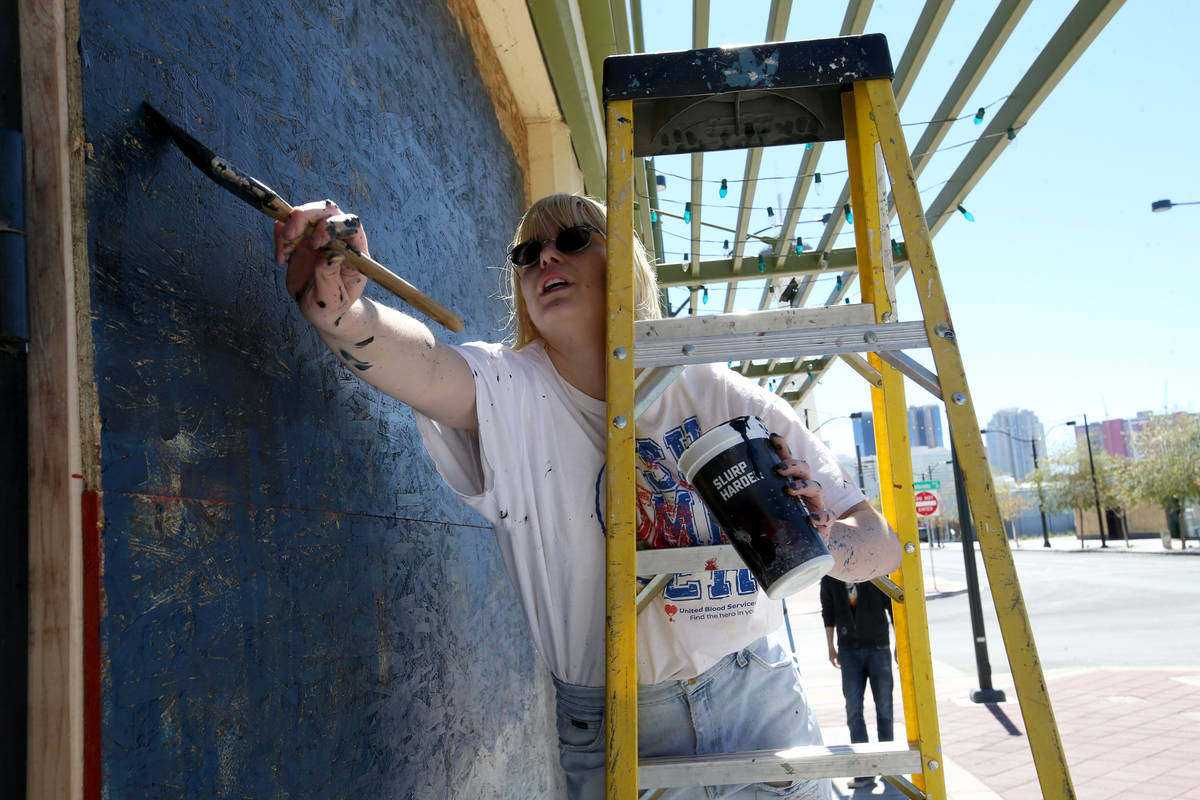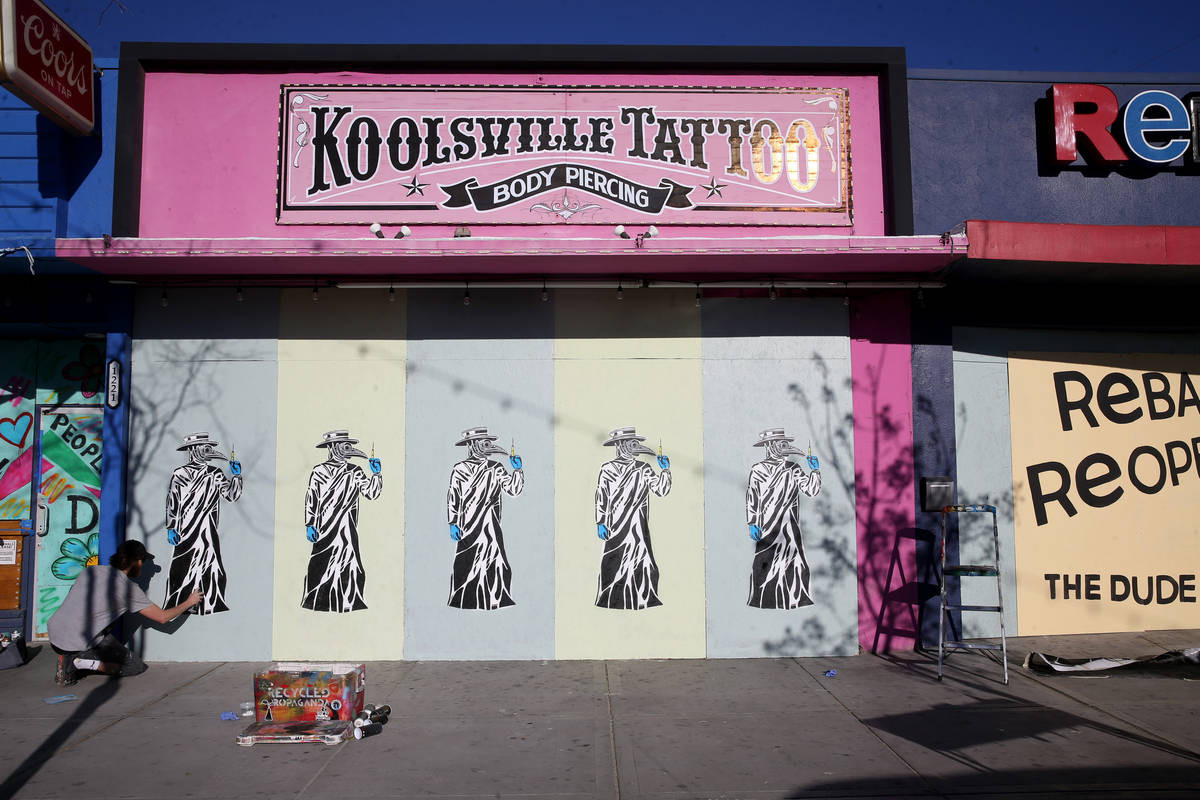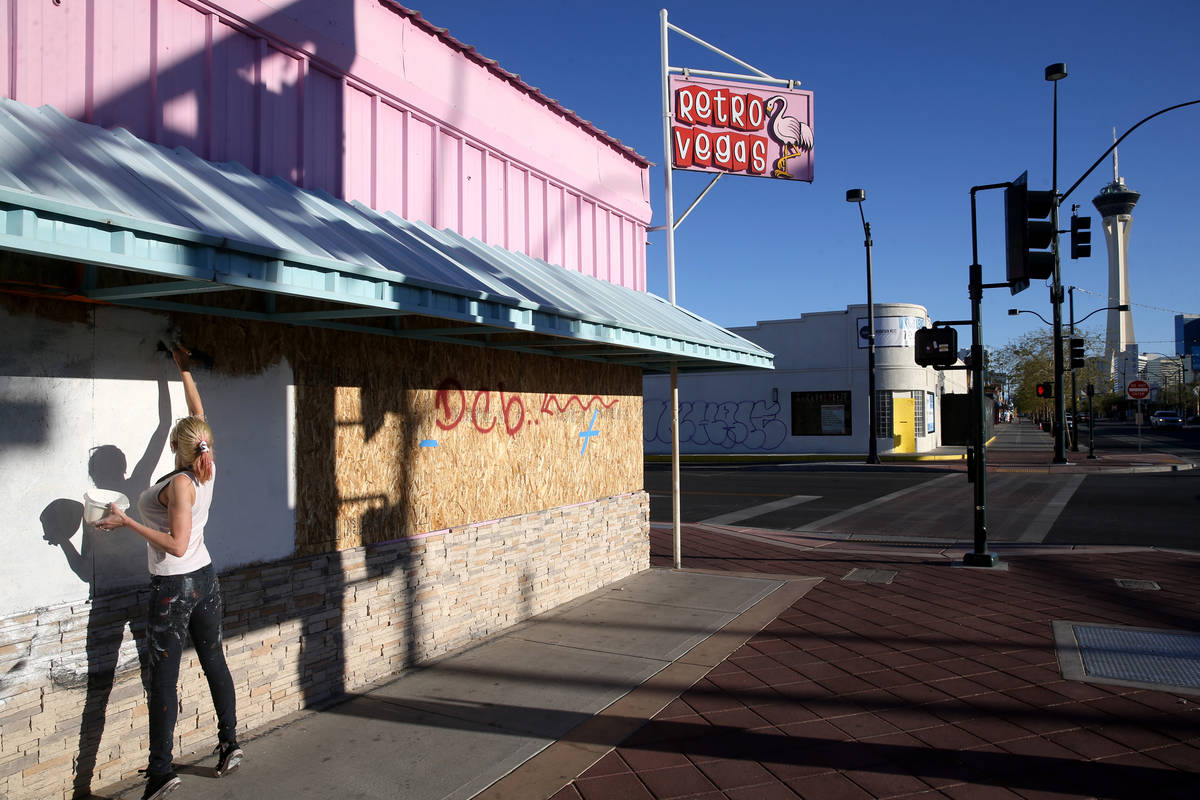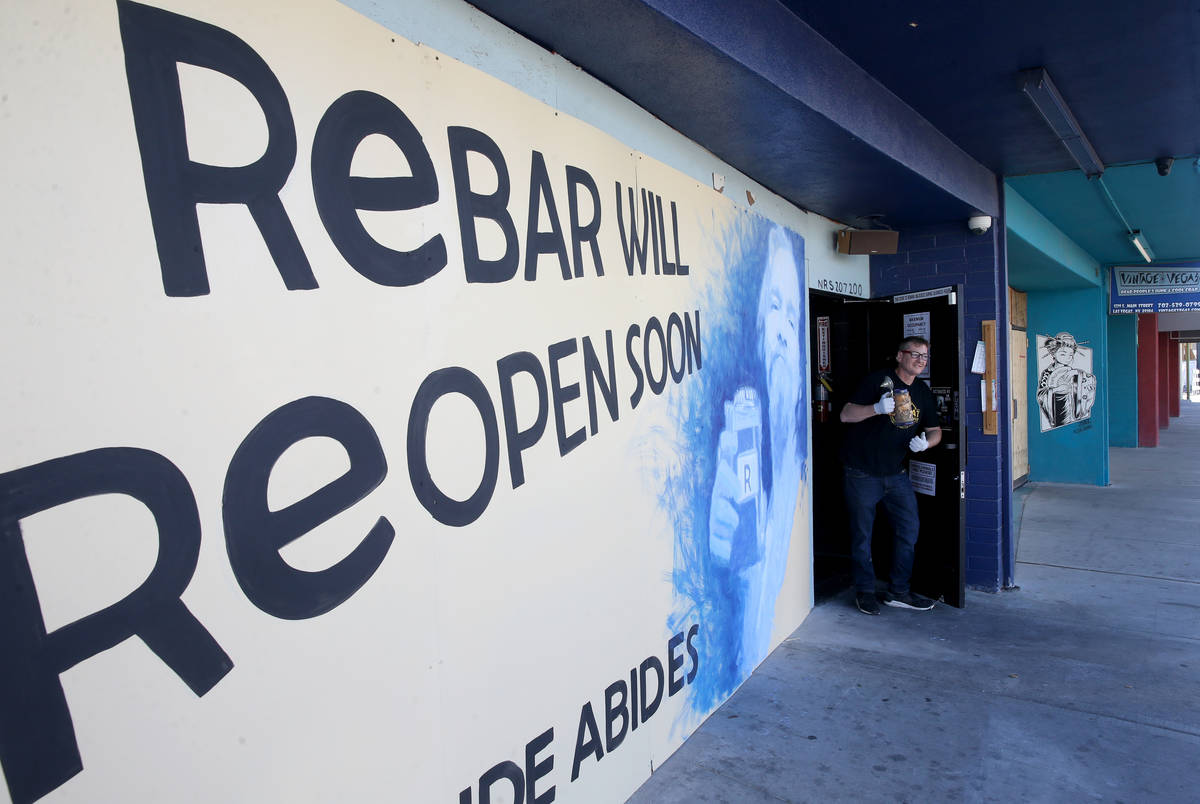Arts District turning plywood into artwork to inspire hope
A week ago, Derek Stonebarger removed all the alcohol, valuables and toilet paper from his bar, locked the doors and shuttered the building with plywood.
He hated seeing his small business, ReBar, boarded up as though it were waiting for a hurricane.
So on Monday he posted on social media, asking whether any artists would be interested in brightening up his stretch of Main Street in exchange for a surface, surplus paint and a small stipend.
By Tuesday morning, 30 prominent local artists had paired with 10 small businesses on Main Street and Charleston Boulevard to transform plywood into hope-inspiring works of art.
As with all nonessential businesses in Nevada, Stonebarger needed to close his antique shop and bar for 30 days because of the coronavirus pandemic. Fearing break-ins, he boarded up the windows.
“I hated the look of it. So I had some leftover blue paint and painted it. Then I asked artist James Henninger if he could do something,” says Stonebarger, looking at the facade that now features an image of The Dude from “The Big Lebowski” next to the words “ReBar will ReOpen soon.”
Next, ReBar’s gallery curator, Geneva Marquez decorated the boards over Stonebarger’s other bar, Davy’s, inscribing the phrase, “Tough times don’t last, tough people do” in bright colors with hearts and flowers.
“We went to the extreme of boarding up the back. And I felt secure, but it was so ugly,” Stonebarger says. “I thought let’s hire an artist.”
Stonebarger says 30 or 40 artists answered his social media post, among them Izaac Zevalking, who works under the name Recycled Propaganda out of his studio on Main Street, and the late Alex P. Huerta’s Three Baaad Sheep partners, who have a studio in the Arts Factory.
Marquez is pairing business owners with artists who embrace a similar aesthetic, such as an artist who uses floral motifs for the facade of Gaia flowers and one who uses geometric shapes for cityscapes for Novus Architecture’s storefront.
“We’re trying to get this looking artistic in the Arts District,” Marquez says. “Rather than just looking at wooden boards, which is kind of sad.”
Marquez is scheduling artists for alternating time slots, so that no one works less than 6 feet from another artist.
“This community is really a family down here,” says Becky Miller, who owns Main Street Mercantile and has owned most of the buildings on the 1-acre block since 2007.
Stonebarger says participating artists can charge $5,000 for murals of this scale, but because he is still paying his employees’ wages for 30 days, he can offer only $50 or $100.
“They’re like, ‘Dude, I don’t even want that,’ ” Stonebarger says. “I want to do it so that later we can sell it and raise money for something.”
When this passes, and Stonebarger is sure it will, he plans to show the murals in a warehouse or gallery space and sell them as a fundraiser, though he is not yet sure which cause he will support.
“It’s probably something art-related, Arts District related,” Stonebarger says. “But there are so many people who are going to be affected by this and need help.”
Contact Janna Karel at jkarel@reviewjournalcom. Follow @jannainprogress on Twitter.



